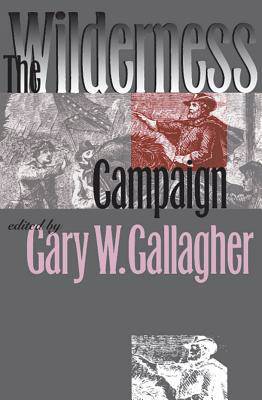
- Retrait gratuit dans votre magasin Club
- 7.000.000 titres dans notre catalogue
- Payer en toute sécurité
- Toujours un magasin près de chez vous
- Retrait gratuit dans votre magasin Club
- 7.000.0000 titres dans notre catalogue
- Payer en toute sécurité
- Toujours un magasin près de chez vous
The Wilderness Campaign
49,95 €
+ 99 points
Description
In the spring of 1864, in the vast Virginia scrub forest known as the Wilderness, Ulysses S. Grant and Robert E. Lee first met in battle. The Wilderness campaign of May 5-6 initiated an epic confrontation between these two Civil War commanders -- one that would finally end, eleven months later, with Lee's surrender at Appomattox.
The eight essays here assembled explore aspects of the background, conduct, and repercussions of the fighting in the Wilderness. Through an often-revisionist lens, contributors to this volume focus on topics such as civilian expectations for the campaign, morale in the two armies, and the generalship of Lee, Grant, Philip H. Sheridan, Richard S. Ewell, A. P. Hill, James Longstreet, and Lewis A. Grant. Taken together, these essays revise and enhance existing work on the battle, highlighting ways in which the military and nonmilitary spheres of war intersected in the Wilderness.
The contributors: --eter S. Carmichael, 'Escaping the Shadow of Gettysburg: Richard S. Ewell and Ambrose Powell Hill at the Wilderness' -- Gary W. Gallagher, 'Our Hearts Are Full of Hope: The Army of Northern Virginia in the Spring of 1864' -- John J. Hennessy, 'I Dread the Spring: The Army of the Potomac Prepares for the Overland Campaign' -- Robert E. L. Krick, 'Like a Duck on a June Bug: James Longstreet's Flank Attack, May 6, 1864' -- Robert K. Krick, ''Lee to the Rear, ' the Texans Cried' -- Carol Reardon, 'The Other Grant: Lewis A. Grant and the Vermont Brigade in the Battle of the Wilderness' -- Gordon C. Rhea, 'Union Cavalry in the Wilderness: The Education of Philip H. Sheridan and James H. Wilson' -- Brooks D. Simpson, 'Great Expectations: Ulysses S. Grant, the Northern Press, and the Opening of the Wilderness Campaign'
The eight essays here assembled explore aspects of the background, conduct, and repercussions of the fighting in the Wilderness. Through an often-revisionist lens, contributors to this volume focus on topics such as civilian expectations for the campaign, morale in the two armies, and the generalship of Lee, Grant, Philip H. Sheridan, Richard S. Ewell, A. P. Hill, James Longstreet, and Lewis A. Grant. Taken together, these essays revise and enhance existing work on the battle, highlighting ways in which the military and nonmilitary spheres of war intersected in the Wilderness.
The contributors: --eter S. Carmichael, 'Escaping the Shadow of Gettysburg: Richard S. Ewell and Ambrose Powell Hill at the Wilderness' -- Gary W. Gallagher, 'Our Hearts Are Full of Hope: The Army of Northern Virginia in the Spring of 1864' -- John J. Hennessy, 'I Dread the Spring: The Army of the Potomac Prepares for the Overland Campaign' -- Robert E. L. Krick, 'Like a Duck on a June Bug: James Longstreet's Flank Attack, May 6, 1864' -- Robert K. Krick, ''Lee to the Rear, ' the Texans Cried' -- Carol Reardon, 'The Other Grant: Lewis A. Grant and the Vermont Brigade in the Battle of the Wilderness' -- Gordon C. Rhea, 'Union Cavalry in the Wilderness: The Education of Philip H. Sheridan and James H. Wilson' -- Brooks D. Simpson, 'Great Expectations: Ulysses S. Grant, the Northern Press, and the Opening of the Wilderness Campaign'
Spécifications
Parties prenantes
- Editeur:
Contenu
- Nombre de pages :
- 304
- Langue:
- Anglais
- Collection :
Caractéristiques
- EAN:
- 9780807857854
- Date de parution :
- 28-08-06
- Format:
- Livre broché
- Format numérique:
- Trade paperback (VS)
- Dimensions :
- 156 mm x 234 mm
- Poids :
- 439 g

Les avis
Nous publions uniquement les avis qui respectent les conditions requises. Consultez nos conditions pour les avis.





